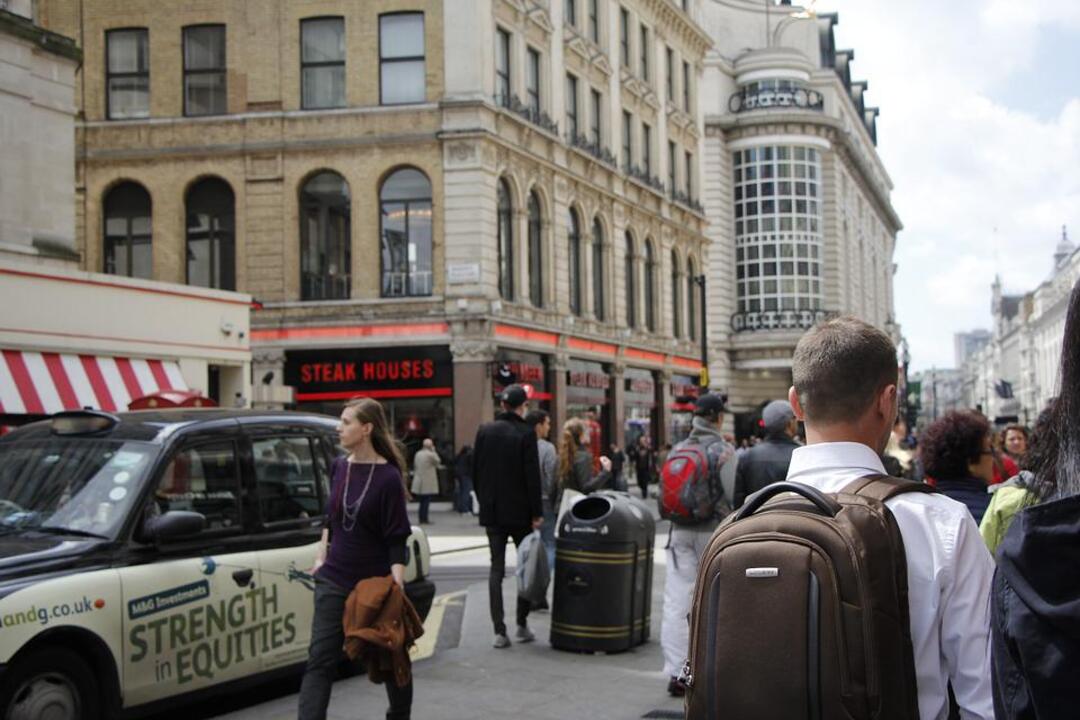-
UK unemployment rate hits fresh low since 1974

Official data showed on Tuesday (Oct 11), the United Kingdom's (UK) unemployment rate in the three months to August decreased to 3.5 percent, the lowest since February 1974, as long-term sickness kept some workers out of the labor market, according to the Xinhua.
According to the Office for National Statistics (ONS), the number of people unemployed for between 6 and 12 months increased in the June-August period, while there were decreases for the short-term (up to 6 months) and long-term (over 12 months) unemployed.
Meanwhile, the economic inactivity rate for people neither working nor looking for work increased by 0.6 percentage points to 21.7 percent in the three months. This increase was driven by people inactive because they are long-term sick or because they are students.
The ONS noted, the number of those economically inactive because of long-term sickness increased to a record high.
The UK employment rate for June-August stood at 75.5 percent, 0.3 percentage points lower than the previous quarter of March-May.

"While unemployment is falling, so too is employment, as the workforce continues to shrink," the think tank Resolution Foundation said.
"High levels of economic inactivity pose a challenge to the government's growth agenda, given that growth in the 2010s was driven in large part by rising employment."
Care worker numbers fall in England, leaving more people without support
Growth in average total pay including bonuses was 6 percent, whereas growth in regular pay excluding bonuses was 5.4 percent among employees in June-August. This is the strongest growth in regular pay seen outside of the COVID-19 pandemic period, the ONS added.
Chief economist at the Institute of Directors Kitty Ussher said: "Combined with such a low rate of unemployment and pay rises edging upwards, we see no reason why the Bank of England would pause its upward march of interest rate rises when it meets in early November.”
Source: xinhua
You May Also Like
Popular Posts
Caricature
BENEFIT Sponsors BuildHer...
- April 23, 2025
BENEFIT, the Kingdom’s innovator and leading company in Fintech and electronic financial transactions service, has sponsored the BuildHer CityHack 2025 Hackathon, a two-day event spearheaded by the College of Engineering and Technology at the Royal University for Women (RUW).
Aimed at secondary school students, the event brought together a distinguished group of academic professionals and technology experts to mentor and inspire young participants.
More than 100 high school students from across the Kingdom of Bahrain took part in the hackathon, which featured an intensive programme of training workshops and hands-on sessions. These activities were tailored to enhance participants’ critical thinking, collaborative problem-solving, and team-building capabilities, while also encouraging the development of practical and sustainable solutions to contemporary challenges using modern technological tools.
BENEFIT’s Chief Executive Mr. Abdulwahed AlJanahi, commented: “Our support for this educational hackathon reflects our long-term strategic vision to nurture the talents of emerging national youth and empower the next generation of accomplished female leaders in technology. By fostering creativity and innovation, we aim to contribute meaningfully to Bahrain’s comprehensive development goals and align with the aspirations outlined in the Kingdom’s Vision 2030—an ambition in which BENEFIT plays a central role.”
Professor Riyadh Yousif Hamzah, President of the Royal University for Women, commented: “This initiative reflects our commitment to advancing women in STEM fields. We're cultivating a generation of creative, solution-driven female leaders who will drive national development. Our partnership with BENEFIT exemplifies the powerful synergy between academia and private sector in supporting educational innovation.”
Hanan Abdulla Hasan, Senior Manager, PR & Communication at BENEFIT, said: “We are honoured to collaborate with RUW in supporting this remarkable technology-focused event. It highlights our commitment to social responsibility, and our ongoing efforts to enhance the digital and innovation capabilities of young Bahraini women and foster their ability to harness technological tools in the service of a smarter, more sustainable future.”
For his part, Dr. Humam ElAgha, Acting Dean of the College of Engineering and Technology at the University, said: “BuildHer CityHack 2025 embodies our hands-on approach to education. By tackling real-world problems through creative thinking and sustainable solutions, we're preparing women to thrive in the knowledge economy – a cornerstone of the University's vision.”
opinion
Report
ads
Newsletter
Subscribe to our mailing list to get the new updates!





















